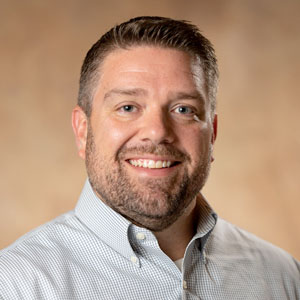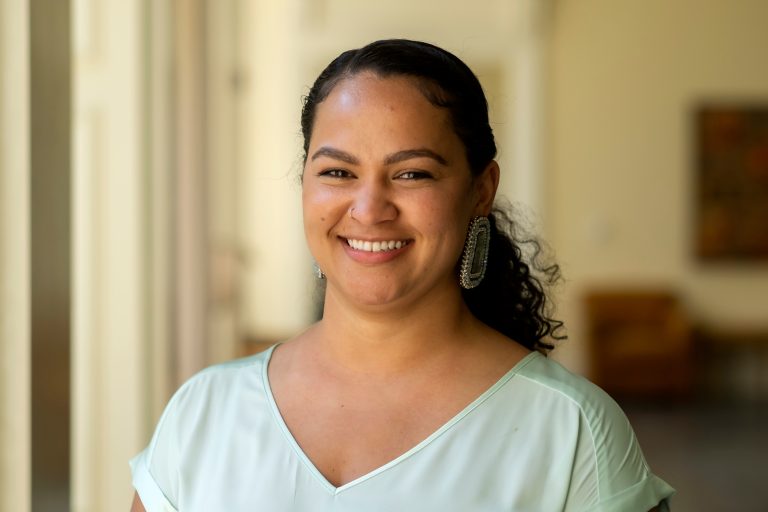By Nancy E. Oates
How easily stress sometimes slides to depression and despair before sinking into hopelessness. The earlier an intervention intercepts that continuum, the greater the chance of averting crisis. Teens emerging from the shelter of childhood into the comparatively callous world of adulthood often are at their most vulnerable. The second leading cause of death for children ages 12 to 17 is suicide.
The North Carolina Governor’s Office has made a $4.6 million commitment to a program housed at UNC School of Social Work to connect with struggling youth and guide them toward help. The yearlong grant, which started July 1, will cover costs for adults who engage with teens and for teens themselves to be trained and certified to recognize early signs and symptoms of youths experiencing mental health challenges and addictions.
The program, called Youth Mental Health First Aid, aims to touch all 100 counties in North Carolina to train teachers, coaches, parents and other adults who engage regularly with high schoolers and middle schoolers to identify red flags and offer resources to help teens cope. Ruby Brown-Herring, a former Mental Health First Aid Coordinator at the School of Social Work, has helped get the program off the ground thanks to her experience working as a mental health professional.

“This is part of North Carolina’s push to reduce youth suicide and youth mental health crises we’ve seen recently,” Malagon said. The U.S. Surgeon General put out a warning in 2021 that youth mental health was at a crisis level nationwide.
“Access to mental health care is very poor in North Carolina,” Malagon said. “School staff are struggling and feel ill-equipped to handle the mental health challenges of young people.”
Behavioral Health Springboard at the School of Social Work has hosted Mental Health First Aid on the UNC-Chapel Hill campus since 2015. The new grant from the Governor’s Office enables this intervention model to expand beyond campus to teens throughout the state. MHFA is an international nonprofit that began in Australia in 2001. Over the past 22 years, it has certified 15,000 instructors who have trained some three million lay people to be an extra set of eyes and ears to detect when someone is not coping well and to avert a crisis.
Adults and teens trained by MHFA and YMHFA don’t diagnose illness, nor do they commit to a long-term relationship with the people they recognize as needing help. Participants learn about resources for those struggling, how to respond in a crisis, and how to help those with challenges strengthen their support network and their resiliency.
Each training program is eight hours, which can be completed over one or two days, either virtually, in person or both. The curriculum looks at signs and symptoms through a phased process, from early warning signs through worsening symptoms to crisis. Participants learn how to respond to people in different phases and the various resources available. Resources range from a professional counselor or ongoing therapy to less formal interventions such as a circle of friends or support group or a trusted, caring adult.
Paul Lanier, principal investigator for Behavioral Health Springboard, said the MHFA program serving students on campus conducted 64 trainings in the past year, yielding nearly 1,000 trained lay people circulating among the 30,000 students and 6,000 faculty in Chapel Hill. He and Alicia Freeman, who runs MHFA for students on campus, would like to boost the number of training participants to 1,500.

Often, the first symptoms may express themselves in dorms or classrooms where students spend the majority of their time, said Avery Cook, MSW ’04, the director of UNC’s Counseling and Psychological Services (CAPS).
“We know statistically, at UNC and other counseling centers, the first place someone goes when they’re experiencing mental health concerns is not usually the counseling center,” she said. “Usually, they go to friends and family first to talk about what’s going on. Having people outside of the clinical setting to identify signs and express concern and connect people to support becomes a really important primary intervention. Friends and family often catch things before we at CAPS have the opportunity to see those things.”
Freeman said interest in training has picked up recently. The two-day training course provided the week after a professor was fatally shot in his lab was completely booked.
Some of that stress for students comes from being aware of destabilizing issues through their political engagement, said Derek Kemp, associate vice chancellor for campus safety.
“Because their phones are close to them, students have a lot more information coming in, whether it’s accurate or not,” he said. “They are learning to discern what’s grounded in fact. With the speed it comes in, they have much more to navigate.”
Kemp took the training in 2018, with some skepticism. But the training opened his eyes to how much he didn’t know.
“My knowledge was enhanced by the course,” he said. “I also established working relationships with faculty and others that have been beneficial in resolving issues.”
He recalled a grim period in 2021 when four students committed suicide in a two-month period.
“Imagine what that did to the mood of campus at large and my team, the responders and student affairs, trying to grapple with the tragic loss of young life,” he said.
The MHFA course helped him gain a better understanding of what the community was going through and greater resiliency as they worked through the issues.
Suicide is the apex of a mental health crisis, said Sarah Reives-Houston, director of Behavioral Health Springboard, who oversees MHFA and YMHFA.
“When they get to the point they’re contemplating suicide, a lot of time has passed where resources and supports haven’t been made available. So many things have been missed; cries of help went unheard,” she said. “The more you increase awareness, the more you can be preventive and proactive. You can connect them to resources before their challenges feel insurmountable.”
The MHFA and YMHFA curriculum also help reduce the stigma of mental health and substance abuse challenges, Reives-Houston said. Stigma can be a major obstacle for people who could benefit from intervention and support. Additionally, people were isolated without resources for a long time during the pandemic, and more people slid farther down the continuum toward despair, making recovery feel that much harder to begin.
At the same time the need for resources has increased, the number of people entering the helping professions, including teaching, has decreased.
“We’re not generating the numbers of providers at the level that’s needed,” Reives-Houston said. “Resources and support are going to be people like me and you, not just clinicians who take so much longer to develop.”
Mental Health First-Aiders can lend support, connect people with resources and take time to have a caring conversation. They can be just as influential as service providers.
“They’re the first line of defense,” Reives-Houston said.
YMHFA has set a goal of training 100 instructors and certifying 2,500 adult participants and 1,000 teens for peer-to-peer intervention before the grant expires at the end of June 2024. Already the program has conducted training on-site at high schools in Raleigh and Charlotte. Nearly 70 instructors are expected to have completed training by mid-October.
Malagon is also creating three online courses that will be available on the YMHFA website. One course will teach participants interacting with younger children, ages 4 to 11. Because only one state has mandated YMHFA training to be conducted regularly in schools, North Carolina’s program has the opportunity to serve as a template for other states.
Whether funding will continue after this year is uncertain. Private donors can contribute and were particularly important in getting MHFA for students on campus up and running. People who work with teens and college students don’t expect the need for intervention to decrease anytime soon.
“People might feel helpless on how to support youth under stress,” Malagon said. “We’re here as a vehicle to help adults in their lives feel empowered and competent in how to help. We’re creating a culture of change in North Carolina.”
Those interested in taking the training can learn more at: SSWevents.unc.edu/mhfa-training.


